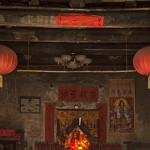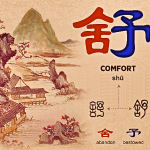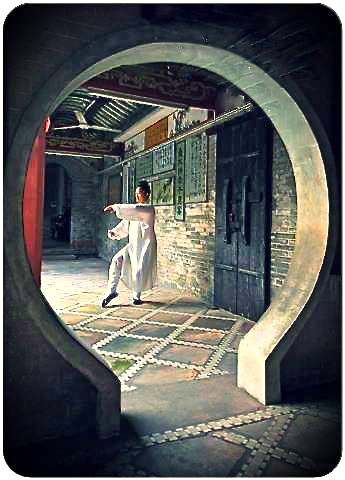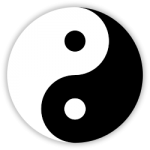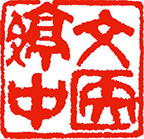
Jeffrey Yuen
Interview for NESA Currents Newsletter
An Interview with Michael P. Arsenault
Posted in exact excerpt from original text
Mike Arsenault: Historically in Chinese Medicine, what part did self-cultivation of the practitioner play in this form of medicine?
Jeffrey Yuen: Well, historically cultivation is the basis, or one of the reasons why one would enter into the Chinese medical field. Even when you go back to the Nei Jing you have several chapters that talk about the importance of cultivation, the idea of observing the spirit of the individual and really paying attention to your own spirit in the process of treating. So I think it is a much more “being present” type of practice. Rather than simply: “Here’s the client. These are the signs and symptoms.” where you try to intellectually come up with a diagnosis—in truth you’re just really being present. We didn’t have patterns that we could identify with symptoms back then–historically. So it was definitely a very cultivation-oriented tradition. I would say some of that—I wouldn’t say its lost, but definitely it’s not as emphasized in modern times because I think a lot of times people think of medicine more as a body of knowledge and you try to learn the knowledge rather than trying to learn the spirit of this medicine.
M.A.: What percentage of current practitioners do you think are actively involved in self-cultivation? What percentage past practitioners?
Jeffrey Yuen: In terms of percentage, I don’t think I can speak for people in the past or people of the present. I would like to hope that the majority of the practitioners in the field are cultivating rather than try to say really “Well, this certain percentage are involved in cultivation” because I am not a person to judge someone’s cultivation. I also think that in everyone in a way is cultivating, it is just a matter of how conscious they are in their process of cultivation. I wouldn’t really be able to give a percentage. I would think that in the past, cultivation was a lot more prevalent because in the past a lot of it was through apprenticeship. So you were cultivating as you were learning from the teacher, rather than nowadays it is more classroom and the constraints of teaching some material within a certain time period or through a certain coursework. That also disadvantaged the teacher from being able to allow students to go through the process of learning cultivation—that the teacher may already possess—because they are restricted by time constraints in the curriculum that they are presenting.
M.A.: Can you give a basic description of the general stages of cultivation?
Jeffrey Yuen: Well the best model that we can look at in terms of cultivation would be what comes from the alchemical traditions. So, in the model, what you have is what you might call an “Initiation”—something that awakens the person—that they need to be a little different in what it is that they are learning—what it is they are practicing. Different in the sense that, it’s not about something that is intellectual, but something that gives them the opportunity to really come to discover more about who they are. And that’s the Initiation process. And of course during the Initiation Process even though that you are aware that you have to be attentive to your process, that process is going to be challenging. You’re always going to have to come back to the process and develop a way that you can filter out the distractions, and that becomes known as the stage of Purification. So, from Initiation comes Purification, and then as you begin to purify there is always the process of reconstituting. That means I’ve learned to let go of these sort of things that at one time I was very attached to. And now I’m able to have a new sense of who I am and that’s like a Resurrection. That’s like a reconstitution of who you are. And after you reconstitute who you are—having the courage to stay true to that new sense of who you are—and that becomes, really, the foundation by which you really are now truly cultivating.
M.A.: Can you recommend any good texts translated into English that can help students interested in self cultivation?
Jeffrey Yuen: I would say that in terms of texts, that you don’t really have a lot of instructional texts. You have informative texts, because you can’t teach cultivation. You can’t transmit cultivation. You can only really embark upon it through your own self. It’s almost like wisdom can only be discovered within. Knowledge you can always learn with out. And so yes, there are leading sinologists who have translated some of these cultivation texts, like translations by Eva Wong in terms of Taoism or Livia Kohn in terms of Taoist Cultivation—and there was an older book called Taoist Yoga (Lu K’uan Yu)—so there are definitely informative manuals but, would I call them instructional manuals? I would say “no”. Because you can’t really transmit something, that in my opinion, really requires a very intimate relationship between the apprentice—or the student, and someone who can serve– not so much as a teacher—but as a good guide to help nudge them in a certain way so they are able to see things from a different perspective and hopefully discover what they truly see within themselves as their truth.
M.A.: With that, how does one find a qualified teacher?
Jeffrey Yuen: I think you don’t find a qualified teacher, the teacher finds you. So I think it’s really this term “Gam Ying (Cantonese)”/“Gan Yin” (Mandarin) and the idea of that is resonance. That, when the time is right, that which you seek will appear. Seeking already puts it far away. So I don’t think you find a teacher. I think you and the teacher find each other. I think once you put yourself in the mode that you are committed to changing, or not necessarily changing but, to be more aware of who you are, that particular teacher, or that particular guide,–and it can be a bunch of people—not even one person—begins to show up in your life.
M.A.: And then, once involved in cultivation, how does this benefit one’s patients?
Jeffrey Yuen: Well, your patients are part of the teachers. You patients are some of those guides that help you to become more attuned to who you are. So your patients are not only helping you as you think you are helping them. I think the more present you become to cultivation, the more attentive you are going to be with your clients. And the more likely you are going to really be –in terms of the concept of “Ren”—be really as one with your client. And I think that is not necessarily something that you work step-by-step. I think that’s really a process that as you cultivate, you begin to embrace more things. You open your heart. And I think you help the client more if you embrace who they are. You open your heart to them and you are trying to help them to change– to the best that you can as a clinician, what ultimately has to occur within themselves.
M.A.: Having been involved for numerous decades, would you be willing to share some of the more impressive or interesting things you have seen in the realm of self-cultivation?
Jeffrey Yuen: Well, you know, my main teacher was my grandfather. And, if I were to compare myself to my grandfather, I am still a novice at what he was able to accomplish—in terms of his own self-cultivation. So, in watching him, he would basically have experiences, or I would have experiences with him—that I would not be able to explain in terms of scientific or in terms of ‘current reality’ explanations. He was able to do things that people would put under the domain of the superhuman or the supernatural. So, I have definitely seen that through self-cultivation that you can transcend the realities that others would want you to be in. You can really show that the realities are what you create rather than what others believe need to be the realities of life. So, the idea of what in Chinese we call ‘kong jing’—the ability of empty force—the ability to move objects—we call in telekinesis in Western terms—I’ve seen these types of things. Things that I don’t think necessarily become an enticement to cultivate, but it becomes a validation of what you can accomplish through cultivation.
MA: I think in some cases it becomes an enticement for some people.
Jeffrey Yuen: Yes, it can, sure. Maybe. But then, you see it becomes something that takes them away from being present. Because then you have a goal. You want to achieve this. You want to achieve that. And then you put time constraints on yourself: “How long am I going to take to achieve this?” No one can tell that. And also, my grandfather, basically, grew up in temple. So he had the environment that was conducive to what he was cultivating. He also had the time. In modern times, because of people’s own lifestyles– the level of the amount of time that they can expend in cultivation I think is going to be, to some degree, the level of skills that they develop through their cultivation…. But regardless of time and regardless of skill, you can always be present. And that doesn’t matter how long you’ve studied. It’s just the idea of staying present. It is kind of like the beginning step of that Initiation.
